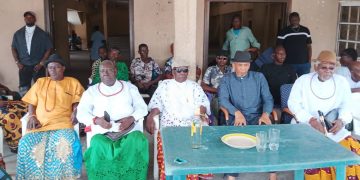Niger Delta activist, Comrade Milky Nwafor has commended the Nigerian Government for its technological achievements especially in the telecommunications sector.
Addressing newsmen in Asaba, Comrade Nwafor, noted that Nigeria, like any other developing nation, is doing its best in terms of technology.
He admitted that though, most of the technological inventions are not spearheaded by Nigerians, but applauded the government in the area of telecommunications and road construction.
Nwafor, however, faults the lack of proper planning and consideration before embarking on notable technological programmes which he said; took the developed world years to achieve.
He called on the head of ministries and government leadership to plan properly before unveiling programmes or projects that will be beneficial to all Nigerian.
He reiterated the need for advanced technological gadgets to achieve good results lamenting the lack of good working technological gadgets in most agencies in Nigeria.
He disclosed that at the inception of the Federal Road Safety Corps FRSC, there were gadgets available to check and control the speed of vehicles in the highways, and as well gadgets to test alcohol content in the driver’s body system, he questioned if such gadgets are still in place.
On the digitalization project for vehicle Inspectorate Division under the private-public partnership system, Nwafor said it is a welcome initiative as it will enable those in-charge, to inspect every vehicle thoroughly, but condemned its urgency and the speed of implementation when facilities are not on the ground.
Nwafor said, “You can’t copy from the advanced nations without proper planning. Most of these technologies in place in the Western world took them years of planning before putting such to use.
“To further buttress my point, when Britain was to change from left-hand driving to right- hand driving it was not done in sudden flight but it was a gradual thing, vehicles with left-hand steering were not automatically bound but were faced out within periods of years
He advised that such laudable programmes laudable as they may look on the face value, they are not without consequences but if spread within a period of five years or more of it’s final execution, the public would have then been prepared for it, pointing out that policies are made for the benefit of the people not the people for the benefit of the policy.
“The required centres should be provided with well-equipped facilities, tested and certified and if this is done, the people no doubt will embrace it gradually but in a situation where you want to go digital and you cannot attend to 100 persons a day, then you are getting it wrong”.













